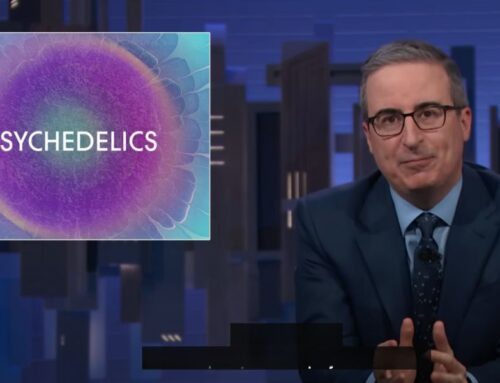June 1, 2020
What Does Depression Feel Like?
Depression – What is it?
Sadness is a normal human reaction that every person alive likely feels at least once a day. Sometimes, these feelings of sadness turn into something more and become debilitating – a mental health condition known as depression. Depression, despite being a mental health disorder, is not just a change in mood – it affects the way you feel and think and can invoke uncomfortable physical symptoms as well.
Depression may make you feel deeply sad or hopeless, but it may also make you feel emotionally empty or simply hollow. Often motivation and the ability to find joy in life are negatively impacted. It varies greatly between different people, but everyone is at risk for depression regardless of age, gender, or socioeconomic status.
While depression cannot be cured, you can find remission and experience relief from your symptoms with the right treatments. It is vital that you educate yourself about the nature of your own depressive disorder to best understand how to find a treatment that works for you.
Symptoms
Depression manifests itself differently in different people, but most cases feature many of the same symptoms. The most common symptoms of depression include:
- Hopelessness and having a bleak outlook
- Feeling like nothing will ever get better in the future
- Changes in appetite, as well as subsequent weight loss or weight gass
- Sudden disinterest in hobbies or social activities you used to enjoy
- Changes in sleep pattern, like sleeping too much or too little
- Being fatigued or feeling drained of energy
- Feelings of intense guilt or self-criticism
- Unexplained headaches, back pain, muscle aches, or stomach upset
- Reckless behavior like substance abuse
Causes
Depression is not caused by any specific factor, but is instead a mix of a complex set of biological and environmental factors such as:
- Genetics and family history, although having blood relatives with a history of depression does that not guarantee that you will develop depression
- Hormonal levels from events like pregnancy or menopause. Hormone levels in the body directly contribute to mood regulation.
- Stressful or traumatic life events like changing jobs, moving, or the loss of a loved one
- Substance abuse or abusing alcohol and drugs
- Other conditions like anxiety disorders, chronic pain, or post-traumatic stress disorder (PTSD).
Risk Factors
There is a wide variety of other factors that can put a person at risk for developing a depressive disorder. Examples of these risk factors for depression include the following:
- Social Withdrawal – If you lack strong social support, it can contribute to depression that is already there or trigger it in the first place. Depression can also cause you to further isolate yourself and withdraw from social activities or your loved ones. It is important to have trusted friends and family to be there for you during times of trouble.
- Relationship Conflicts – Abusive or traumatic relationships can make you more stressed and sad or increase the feelings of hopelessness associated with depression.
- Traumatic Events – Difficult or stressful events like divorce, the death of a loved one, or losing your job can bring on a sense of overwhelming stress and compound your risk of developing depression.
- Chronic Illness – A chronic illness or a condition that brings on chronic pain, such as heart disease or cancer, can contribute to the feelings of hopelessness familiar to those with depression. Chronic inflammation is likely the culprit here.
- Some certain personality traits, such as being overly self-critical or prone to worrying mean you are at a higher risk of developing depression.
- Going through trauma or abuse during childhood, which can also put you at risk for other conditions like PTSD.
- Chronic Stress – Something most of the above have in common is chronic stress which is known to be a major contributor to depression. We know that chronic stress also leads to chronic inflammation.
Lifestyle Changes
In addition to conventional treatment options, there are steps you can take right now at home or in your personal life that can be very useful in combating the symptoms of a depressive disorder.
- Exercise regularly. Regular exercise – even just 30 minutes a day – can be as effective as antidepressants when it comes to treating depression symptoms. Exercise boosts the body’s production of “feel-good” chemicals like serotonin and another very important chemical called brain derived neurotrophic factor.
- Healthy diet. Eat well-balanced meals of whole foods. Some may turn to sugar-filled foods for the quick energy boost they provide, but foods rich in complex carbohydrates are a better option as they provide more controlled blood sugar levels and do not create damaging oxidative stress.
- Get on a regular sleep schedule. If you are not getting enough sleep, this will only worsen common symptoms like irritability or fatigue. You should aim for somewhere between seven to nine hours of sleep every night. Sleep quality is as important as quantity. Learn about good sleep hygiene habits and practice them.
- Try to regulate stress. It likely is no surprise that stress contributes to depression. It is recommended that you find healthy coping methods and outlets to release frustration or stress.
IV Ketamine Infusions for Depression
IV Ketamine infusions are an innovative and promising new treatment option for those suffering from depression. Ketamine was first used as an anesthetic, but in the last two decades has demonstrated great potential for the treatment of depression. According to research, up to 80% of patients can find relief from depression symptoms after undergoing a series of Ketamine infusions.
Ketamine is thought to help restore nerve connections inside the body and help reset them in the brain, effectively rewiring the brain. Research is still ongoing, but Ketamine is opening the door for a new era of depression treatment. If you or a loved one is struggling with depression, we would like to invite you to give us a call to learn more about this new treatment option.






